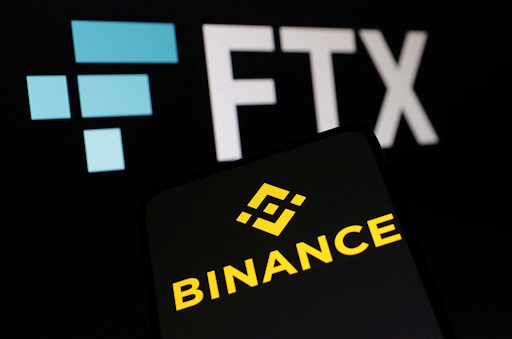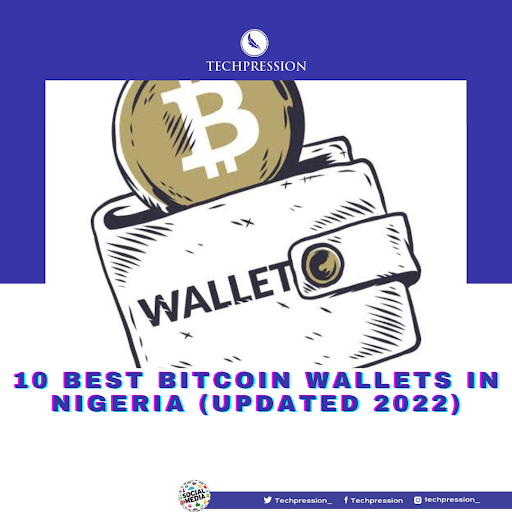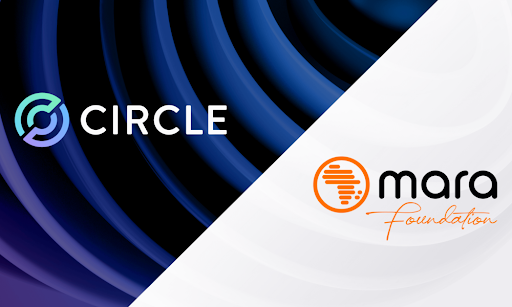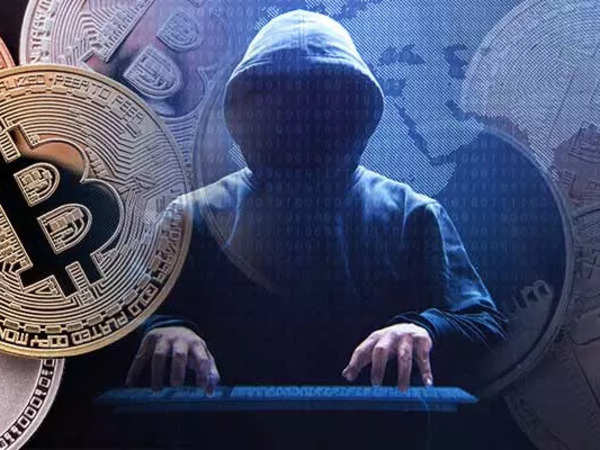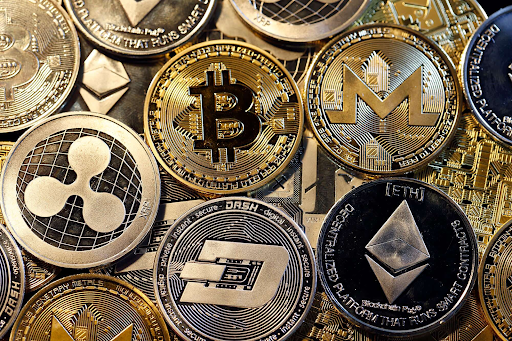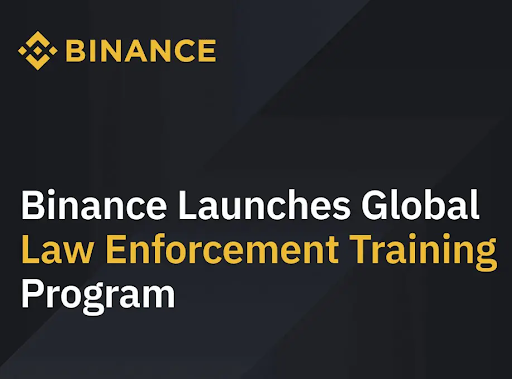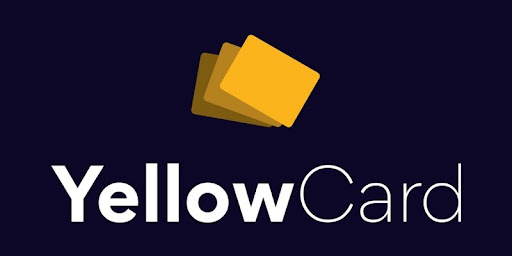Before getting to know the best bitcoin wallet, it is important to understand what the wallet itself means.
A Bitcoin wallet or cryptocurrency wallet is a piece of software or hardware that is used to store digital assets such as cryptocurrencies. Wallets for cryptocurrencies can be compared to online bank accounts in that they not only serve to store your cryptocurrencies but also to send and receive them when you engage in transactions.
There are two kinds of keys that can be stored in a crypto wallet: public keys and private keys.
Public keys for receiving crypto, when someone sends you Bitcoin or another form of digital currency, they’ll need your public key to complete the transaction.
Private keys are required to send cryptocurrency to exchange or spend crypto assets. If you give out your private keys, the other person can use them to take your funds. Private keys can be compared to the login credentials for your online bank account. All your currencies could vanish in a hurry if it were to fall into the wrong hands.
Keep in mind that different digital currencies have different types of addresses and that you can usually only send coins between wallet addresses that are the same type. This means that you have to send Bitcoin to an address for a Bitcoin wallet, Ethereum to an address for an Ethereum wallet, and so on.
Are Crypto/Bitcoin Wallets Safe?
The type of wallet and the user’s actions will have decisive effects on the security of cryptocurrency storage.
A hardware wallet offers the highest level of protection for your cryptocurrency holdings (also known as cold storage). Hardware wallets are incredibly secure since they store your private keys offline, meaning no one can access them unless they are directly in front of the wallet, and even then, it is a difficult task to accomplish. This makes hardware wallets extremely safe.
Since software wallets exist online and are therefore subject to being hacked, their convenience comes at the expense of their security.
Paper wallets also provide some level of protection; nevertheless, the risk of losing your private keys is never completely eliminated, and there is no means to retrieve them if this occurs.
What Bitcoin Wallet should I choose?
Our recommendations are organized to assist you in selecting the wallet that is most suitable for your needs and the assets you possess. It is common practice to use many wallets at the same time due to the fact that different wallets excel at certain tasks to varying degrees. You might, for instance, use one wallet for staking and another wallet for the Web3 services it offers.
Best Bitcoin Wallets in Nigeria
- Crypto.com – Best Crypto Wallet in Nigeria
- Capital.com – Good for trading cryptocurrencies with no fees
- Coinbase – One of the best Bitcoin wallets for beginner
- Binance – Crypto wallet that can also be used as an app for trading
- Luno – Popular cryptocurrency exchange and wallet for mobile traders
- Trust Wallet – Best Mobile Wallet
- MetaMask: Best Web3 Wallet
- Quidax – African exchange with Custodial Wallet
- ZenGO – A safe wallet app for people new to investing in cryptocurrency
- Exodus – Best wallet for beginners
-
Crypto.com – Best Crypto Wallet in Nigeria

Currently, Crypto.com is one of the most recommended cryptocurrency wallet in Nigeria. This well-liked cryptocurrency trading site has not one but two free wallet options. Crypto.com offers a non-custodial wallet called DeFi. Therefore, users are in complete command of their own private keys.
In the same vein, this means that users have an obligation to safeguard their own cryptocurrency. You may get the Crypto.com DeFi wallet on your iPhone or Android device by downloading the appropriate software. Additionally, this wallet provides integration with decentralized services like staking and crypto interest accounts.
Crypto.com’s custodial wallet may be a better option for folks just starting with Bitcoin. Online wallet accessible via the Crypto.com website or the iOS/Android app; no understanding of security standards is required. The company behind Crypto.com guarantees the security of your wallet.
If a user uses the custodial wallet provided by Crypto.com, practically all of their money will be stored in cold storage, out of the reach of hackers. In addition, this wallet type integrates with the central Crypto.com platform, giving users access to an overload of additional features. The Crypto.com wallet, for instance, facilitates Bitcoin purchases in Nigeria at competitive rates.
There is a standard trading cost of 0.40% on each slide, and over 250 more cryptocurrencies are supported. When dealing with larger sums, you can take advantage of discounted trading fees. One can use a Visa or Mastercard to buy cryptocurrency with the Crypto.com wallet app. The cost for this purchase is 2.99%.
With the Crypto.com custodial wallet app, you can also earn interest. For instance, stablecoins like USDT offer an annual percentage yield of 10%. The maximum APY for all other kinds of digital assets is 14.5%. Users have the option of a variable interest account or a fixed interest account with a 1- or 3-month lock-up time, depending on their needs.
Pros
- The Top Bitcoin Wallet Provider in Nigeria
- Compatible with the Crypto.com mobile application
- Coins and tokens can be purchased and staked directly within the wallet.
- Use interest accounts to gain entry to the NFT market.
- Cheap trading fees
Cons
- Only through the app on iOS or Android can users buy cryptocurrency with fiat currency.
-
Capital.com – Good for trading cryptocurrencies with no fees

If you haven’t invested in digital currency yet, you might want to think twice about using a traditional exchange and wallet. This is because Capital.com gives users access to cryptocurrencies without requiring them to own or store any tokens. This is because CFDs are what Capital.com does best.
Simply put, CFDs are like real-time copies of the price of a cryptocurrency. Users can go long or short on any crypto CFD they want, depending on whether they think the price will go up or down. So, Capital.com users can try to make money on the cryptocurrency markets without having to worry about a wallet.
When a user cashes out their crypto CFD position, the money will be added to the account balance. This is a very important fact. Using Capital.com to access the crypto markets in Nigeria is also helpful because the platform charges no fees. This is true for all of its supported markets, which include thousands of stocks, ETFs, currencies, and commodities, as well as 470+ crypto pairs.
When you trade on Capital.com, you can use leverage. This means that users can buy or sell with more money than they have in their accounts. There are also trading tools, such as charts and technical indicators, that can be used. Capital.com users can also use guides and tutorials to learn how the trading markets work.
When you use a credit/debit card or a bank transfer, the minimum deposit at Capital.com is only $20, which is very affordable. If you want to send money through a bank wire, you need at least $250. Capital.com is a platform that is licensed and regulated by the FCA, ASIC, CySEC, and NBRB.
Pros
- Trade crypto CFDs
- Lists more than 470 markets for crypto
- No need to use a cryptocurrency wallet
- 0 per cent fee
Cons
- Beginners can take on more risk when they trade CFDs.
- Not a good option for long-term investments
-
Coinbase – One of the best Bitcoin wallets for beginner

Even though Coinbase is best known for its easy use, it also has one of the best Bitcoin wallets in Nigeria. In fact, just like Crypto.com, Coinbase gives you a number of ways to store your coins. First, many investors who use Coinbase will keep using the web wallet that comes with the platform.
This is a custodial wallet that you can get to by logging into Coinbase. Because of this, you don’t have to install or set up any software. Two-factor authentication and a whitelist of trusted IP addresses and devices protect the Coinbase web wallet. 98% of client funds are always kept offline, which is a big safety measure.
Those who prefer the custodial wallet option can also get to their tokens through the iOS and Android versions of the Coinbase mobile app. A QR scanning tool is built into the app, which makes it easier to send and receive tokens. Coinbase also has a wallet that doesn’t hold your cryptocurrency for you. This gives you more control over your crypto investments.
You can also get this as an app for iOS or Android. People who don’t know much about wallet security shouldn’t choose this option. Still, Coinbase’s non-custodial wallet comes with a number of extra products. This includes support for hundreds of decentralized applications and access to NFTs.
But people who want to buy and sell digital currencies often may want to use the main Coinbase wallet. This is because it gives you access to more than 150 different tokens, all of which can be bought with a debit or credit card. Visa and MasterCard payments cost 3.99% extra when made through Coinbase.
Pros
- The best wallet app for Bitcoin that can hold all ERC-20 tokens.
- You can buy, sell, and bet on crypto right from the wallet.
Cons
- Compared to other wallet providers, it has high trading fees.
-
Binance – Crypto wallet that can also be used as an app for trading

If you want to trade digital assets in Nigeria actively, Binance might be the best crypto wallet. You can use an app for iOS or Android to get to your Binance wallet, or you can just log in to your account on the main website. In either case, the Binance wallet comes with a trading suite that supports more than 1,000 markets and 600 tokens.
Traders who choose Binance will be able to buy and sell tokens for a fee of 0.10%. This means that there will only be a $0.20 fee for every $200 that is traded. When a crypto token is bought, it will go right into the Binance wallet, making it easy to access.
The user’s email address, password, and two-factor authentication are used to protect the Binance wallet. When the user logs into the wallet from a different device, extra security steps are taken. Binance also says that most of its customers’ digital tokens are kept in a cold crypto wallet.
Binance also lets you open interest accounts, stake coins, and farm yields. Some of these DeFi products come with APYs that are higher than 100%. There is also a Binance NFT marketplace where users can buy and sell tokens that can’t be used to buy or sell other tokens. Binance is behind the Trust Wallet app, which is a decentralized wallet that doesn’t hold your money.
This works with almost every blockchain network and lets people use decentralized apps like Pancakeswap. Users can also invest in cryptocurrencies right away with a debit or credit card through Trust Wallet. But first, a KYC verification process needs to be done.
Pros
- Easy to connect to the Binance app.
- The best cryptocurrency wallet in Nigeria if you want to trade with low fees.
Cons
- Its Regulatory status remains unclear
-
Luno – Popular cryptocurrency exchange and wallet for mobile traders

Luno is one of the most popular crypto platforms that you might want to think about. This global exchange has an app for iOS and Android that is easy to use but has many features.
Luno not only lets Nigerians trade digital currencies, but it also gives them a safe place to store them. The Luno wallet can be used on both iOS and Android, and it can hold up to eight cryptocurrencies.
Bitcoin, Ethereum, Chainlink, Uniswap, XRP, USD Coin, and Litecoin are all included. With the Luno wallet, it’s easy to keep track of how much a cryptocurrency is a worth based on the market price at the moment.
Nigerians can also get interested in the money in their wallet. For example, the APY for Bitcoin is 1.5%. But, as we already said, this is only 6% when you use the Crypto.com wallet.
Pros
- Support NGN deposits.
- Great reputation for security
Cons
- Only 8 digital assets could be used.
-
Trust Wallet – Best Mobile Wallet

Trust Wallet is compatible with 65 blockchains and their respective coins and tokens. That’s why we think it’s the most refined mobile wallet and why you shouldn’t bother downloading almost any wallet app.
You can easily add popular cryptocurrencies and tokens to your Trust Wallet, as well as check out charts and real-time pricing data and set up push notifications.
Trust Wallet also supports the import of user-created tokens, so you can access cryptocurrencies that aren’t already included in the app. Due to the ease with which fake versions of established cryptocurrencies can be created, you must take extra precautions to validate contract addresses before proceeding.
Additionally, if the dApp or DEX you wish to use supports the Wallet Connect add-on, you can link to it. You can stake assets straight from your Trust Wallet and even use it to buy cryptocurrencies with cash using services like Moonpay.
Pros
- A built-in exchange that is not centralized
- You can stake your cryptos right from your wallet.
- You can use credit and debit cards to buy cryptos
- Supports Transfers with Bitcoin
- NFT support
Cons
- Only Ethereum and BSC can handle NFTs.
- You can’t withdraw money from your wallet to your bank account.
- No add-on for the browser (extension)
-
MetaMask – Best Web3 Wallet

MetaMask has more than 30 million monthly active users, making it the clear winner for the best Web3 wallet.
Regarding Web3 and DeFi, MetaMask was one of the first non-custodial wallets to help break down barriers. MetaMask is a cross-chain desktop and mobile wallet that facilitates access to decentralized applications (dApps), storage of non-fungible tokens (NFTs) and digital assets, and trading of cryptocurrencies.
The popularity of the MetaMask Web3 wallet can be attributed in large part to its users’ ability to buy and trade cryptocurrencies anonymously. In order to begin trading on DeFi exchanges, you need to download the associated software or browser extension and enter your own seed phrase to get started.
Password, username, and ownership proof are all rolled into one with your unique MetaMask seed phrase. Important to decentralization is the fact that your data is not held centrally and that you retain full control over any assets you may acquire.
Pros
- Easy to install and set up
- No personal identification required
- Supports a number of blockchains, including testnets for building dApps
cons
- No native Bitcoin support
- Keeping private keys in the wrong place can lead to hacks and lost money.
- Not much technical help
-
Quidax – African exchange with Custodial Wallet

Quidax is a well-known exchange that helps traders in Africa. Users can buy and sell cryptocurrencies on the platform for a small fee of 0.3%, which is very competitive. The Quidax can also be used as a wallet that you can access online or through an app for iOS or Android.
It has complete control over the private keys of the wallet, which may be good for new users. When you use this provider, tokens in your Quidax wallet will be moved to the “Vault,” which is one of the best things about it. This lets people use an automated staking tool to earn interest on their tokens.
There is no minimum time you have to wait to cash in your rewards, so you can get them at any time. Another reason to use Quidax is that the wallet provider works with both debit and credit cards. This means that people in Nigeria can buy digital currency right away without leaving the wallet interface.
Quidax also has its own cryptocurrency called QDX. This digital currency can be bought and sold on public exchanges and runs on the Binance Smart Chain. Quidax only works with 20+ tokens, which is one of the main problems with this provider. Because of this, it will be harder to spread out.
Pros
- Low commissions of 0.3% per slide
- You can buy cryptocurrency with a debit or credit card.
Cons
- Only 20+ tokens supported
- are not as safe as some other wallets
- Liquidity levels remain unclear
-
ZenGO – A safe wallet app for people new to investing in cryptocurrency

ZenGO is one of the best Bitcoin wallets in Nigeria for people who want an easy-to-understand interface. This wallet comes with a free app for iOS and Android devices that can be downloaded to your phone.
It only takes a few seconds to set up the wallet, and users can use biometrics to protect their accounts. Even though ZenGo is a non-custodial wallet, it’s easy to get back into an account if you lose it.
For example, if the user loses their phone or deletes the app by accident, they can use a simple face scan to get their wallet back. Several groups, like Scorpiones and Kudelski, have also checked out ZenGo.
ZenGO sells a number of other products in addition to storage. Users can switch from one digital token to another with the click of a button, even if they are on different chains. ZenGo has also made its app work with Nexo, which lets users earn interest on their tokens when they are not being used.
Pros
- Recover access to lost wallet using a facial scan
- Extremely user-friendly
Cons
- Only 12 tokens can be used.
-
Exodus – Best wallet for beginners

Exodus Wallet is a software wallet that lets you use a wide range of cryptocurrencies on your computer or phone. Many wallets only let you manage coins on a single network, but Exodus works with Bitcoin, Ethereum, and Solana, which all use blockchains. Because it can do everything, it is our top choice for a first wallet.
There are new features in the wallet, like a portfolio overview, that help you keep track of what you own. If you want to add to your digital assets, you can use the wallet’s built-in exchange to trade them.
Through Exodus, you can also stake in cryptocurrencies like Algorand (ALGO) and Cosmos (ATOM).
You can keep the keys to your assets on a Trezor hardware wallet for extra security. This makes it easy to switch from one to the other if you decide to go pro.
One of the things that makes Exodus great for beginners is that its support staff is very helpful. If you send them an email for help, you should hear back from them within an hour.
Pros
- user-friendly interface
- supports a multitude of blockchains tokens and currencies
- excellent client service
Cons
- insecure compared to a hardware wallet
- not compatible with two-factor authentication
Bitcoin Mining 2022 – What Is It, How It Works [Infographic]
Conclusion – How to choose the best crypto wallet
Now that you know about all the different kinds of wallets, it’s time to find one that works for you. To do this, you’ll need to think about your needs and compare different wallets based on a number of important factors, such as:
How you want your wallet to look: This comes down to what each person wants. If safety is the most important thing to you, you should probably compare hardware wallets. But if your main goal is to be able to get to your coins quickly and easily, you may want to use a mobile or web wallet.
User-friendly: Receiving, sending, and storing cryptocurrency can be hard and confusing, especially for people who are just starting out. It’s important that the wallet you choose fits your tech skills and level of experience with cryptocurrencies. So, people who are new to crypto might look for a wallet that is easy to set up and use, while people with more experience might look for more advanced features like an in-wallet exchange and transactions that require more than one signature.
Security Features: Find out about the wallet’s security features, such as two-factor authentication and the ability to use more than one signature. Will your private key be kept online or in a different place? Has there ever been a security breach with the wallet?
Other Qualities: Check to see if the wallet has any other features, like the ability to switch between currencies within the wallet or easy access to live fiat exchange rates or other market information.
Supported Cryptocurrencies: Do you want a wallet that can hold just one cryptocurrency, like Bitcoin, or do you want a wallet that can hold more than one? Make sure the wallet you choose works with the cryptocurrencies you want to store and keep in mind that you can only hold some coins and tokens in an official wallet.
The wallet developer: Next, find out what you can about the people who are behind the wallet. When did they start doing business? What do they have that makes them qualified? Are they always making changes and improvements to the wallet?
Cost: Most cryptocurrency wallets are free to use, but if you want a hardware wallet, you’ll have to pay for it. Think about the price you pay upfront when making your choice. Check the fine print because some wallets charge a fee for every transaction you make.
Reputation: How much does the community trust the wallet? Check out a variety of independent online reviews of the wallet to see how other people like it and if they would recommend it.
Interested in learning more about bitcoin and how it works? Check out our complete bitcoin resources.
